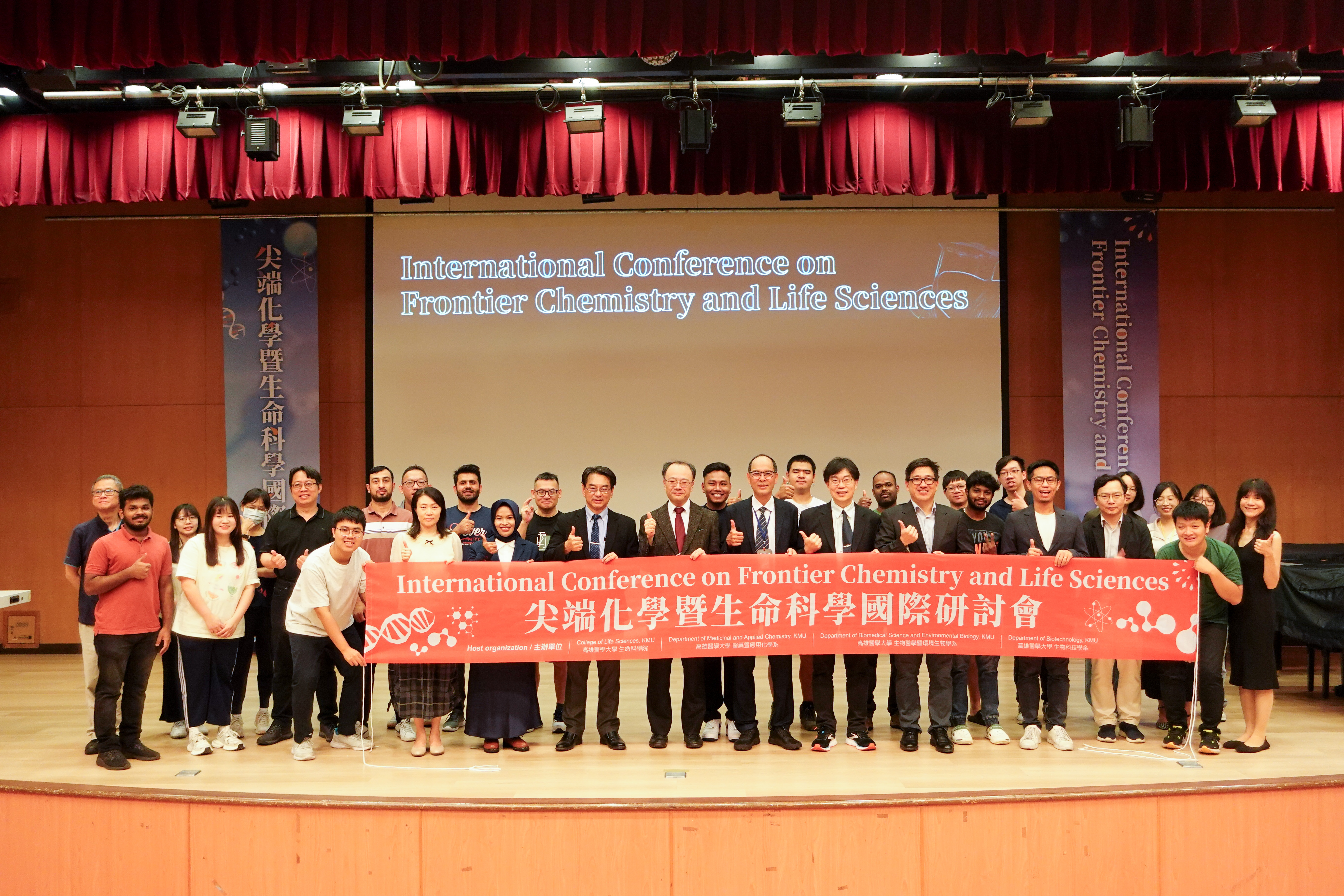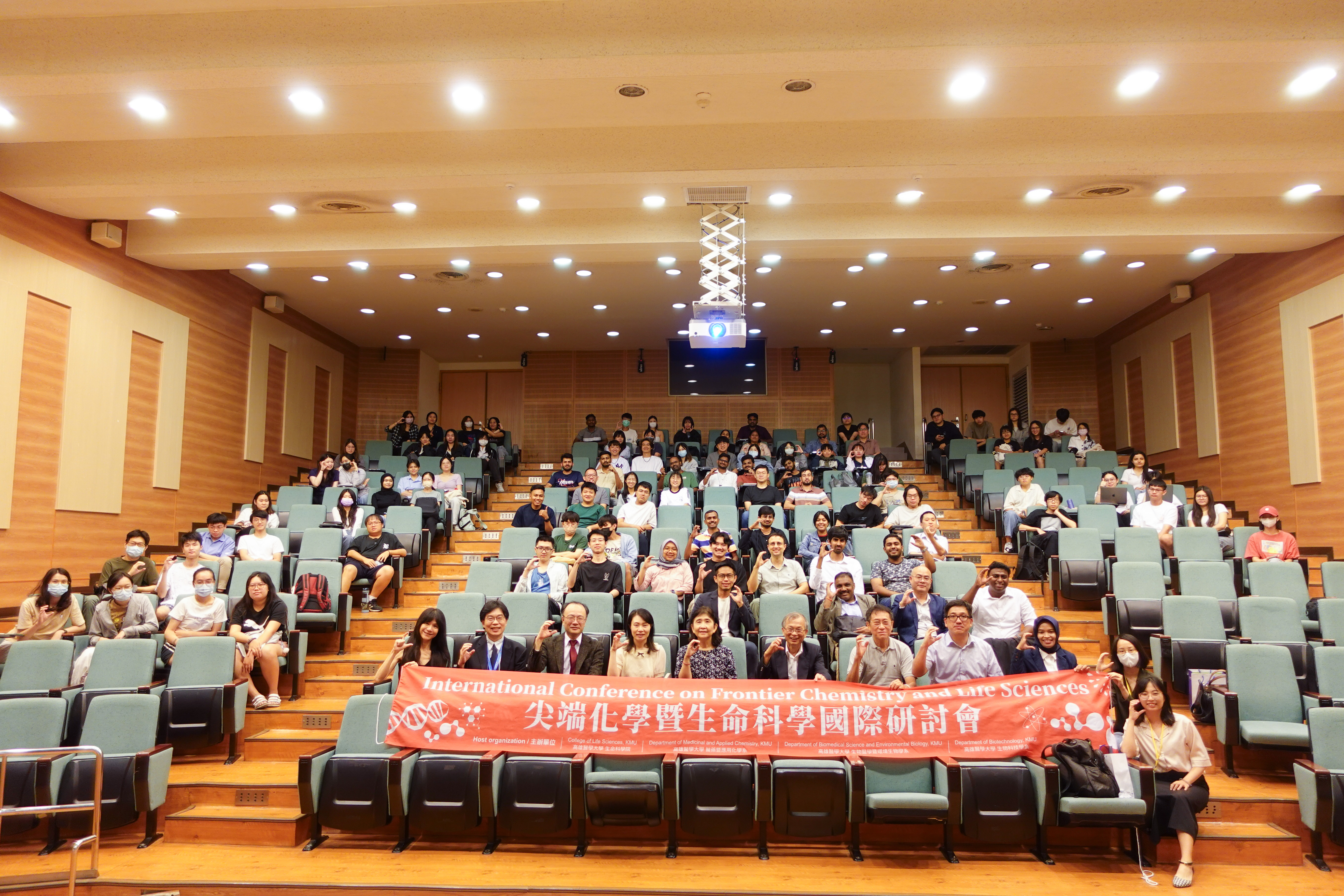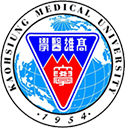Kaohsiung, Taiwan – May 21, 2025 – The 2025 International Conference on Frontier Chemistry and Life Sciences (ICFCLS 2025), held in the College of Life Sciences of Kaohsiung Medical University, successfully concluded, bringing together global researchers, scientists, and students to explore cutting-edge advancements at the intersection of chemistry and life sciences. Hosted by the College of Life Sciences and its departments—Medicinal and Applied Chemistry, Biomedical Science and Environmental Biology, and Biotechnology—the event fostered collaboration and innovation through a dynamic program of presentations, discussions, and networking opportunities.
The conference, held in the Auditorium of the First Teaching Building, kicked off at 8:30 AM with registration, followed by an opening remark from Senior Vice President Yeou-Lih Huang of Kaohsiung Medical University at 9:00 AM. A group photo session set a collegial tone for the day’s proceedings. The morning session, chaired by Professor Sodio C. N. Hsu, Dean of the College of Life Sciences, featured a keynote address by Professor Shigeki Kuwata from Ritsumeikan University, Japan. In his presentation, "Metal-ligand Cooperation: A Principle in Organometallic Catalysis and Bioinorganic Modeling", Kuwata explored how metal-ligand interactions drive catalytic processes and mimic bioinorganic systems, offering insights into bioinorganic chemical synthesis.
Following a coffee break, the session, chaired by Professor Wei-Ting Liao of Kaohsiung Medical University, continued with Professor Alan Yueh-Luen Lee from the National Institute of Cancer Research, National Health Research Institutes. Lee’s talk, "Mitochondrial Signaling and Metabolism in the Tumor Immune Microenvironment", highlighted the role of mitochondrial dynamics in shaping cancer immune responses, opening new avenues for therapeutic strategies. The morning concluded with Professor Chung-Der Hsiao from Chung Yuan Christian University presenting "Use AI Technology to Quantify Fish Pain and Its Application on Painkiller Screening", where he showcased AI-driven methods to assess pain in aquatic models, advancing ethical drug development. Before lunch, Professor I-Ying Kuo from Kaohsiung Medical University delivered "Unlocking Tumor-Immune Communication into Therapeutic Strategies", discussing how decoding tumor-immune interactions can lead to novel cancer treatments. Attendees then enjoyed a networking lunch from 12:00 PM to 1:30 PM.
The afternoon session, chaired by Professor Pei-Feng Liu, began with Professor Yuh-Ju Sun from National Tsing Hua University presenting "Structure of the Sodium-dependent Phosphate Transporter Reveals Insights into Human Solute Carrier SLC20". Sun’s structural biology insights shed light on phosphate transport mechanisms, with implications for metabolic diseases. Professor Jim Jinn-Chyuan Sheu from National Sun Yat-sen University followed with "The Impact of Genetic Alterations in Genes Involved in Mechanotransduction on Cancer Progression", linking genetic changes to cancer development through mechanobiology. Professor Yin-Tse Huang from Kaohsiung Medical University then presented "Beetles, Fungi, and the Evolution of Farming: A Tale of Symbiosis", exploring the evolutionary dynamics of beetle-fungi mutualism as a model for sustainable agriculture.
After a coffee break, the session chaired by Professor Wei-Yu Lin featured Jin-Tai Lin from Kaohsiung Medical University, who spoke on "Rational Design of Chemical Structures in 2D Halide Perovskites: Enhancing Performance through Structural Tailoring". Lin’s work on perovskite materials highlighted their potential in next-generation optoelectronics. Professor Sri Sudewi from Sam Ratulangi University, Indonesia, presented "Fluorescent Quantum Dots Based-nanosensors for Biosensing Application", demonstrating the utility of quantum dots in sensitive biomarker detection. The session concluded with Wen Chen, General Manager of Air Gas Electronic Materials Enterprise Co., Ltd., delivering "Enabling Innovation Through Chemistry Precision: AGEM's Role in the Future of Specialty Gases and Advanced Materials", emphasizing the industrial applications of specialty gases in advancing technology. The final session, chaired by Professor Sodio C. N. Hsu, featured Professor Yun-Ming Wang from National Yang Ming Chiao Tung University. Wang’s presentation, "Development of Impedimetric Immunosensors Utilizing Metal-inorganic Frameworks (MOFs) for Biomarker Detection", showcased MOF-based sensors for precise medical diagnostics, underscoring their potential in healthcare innovation.
The ICFCLS 2025 conference wrapped up with a closing ceremony and banquet from 5:40 PM to 8:00 PM, where participants reflected on the day’s insights and forged new collaborations. Dean Sodio C. N. Hsu expressed optimism that ICFCLS 2025 would inspire breakthroughs in chemistry and life sciences, stating, “This conference has been a remarkable platform for sharing innovative research and building global connections. We look forward to seeing the impact of these discussions on future scientific advancements.”


